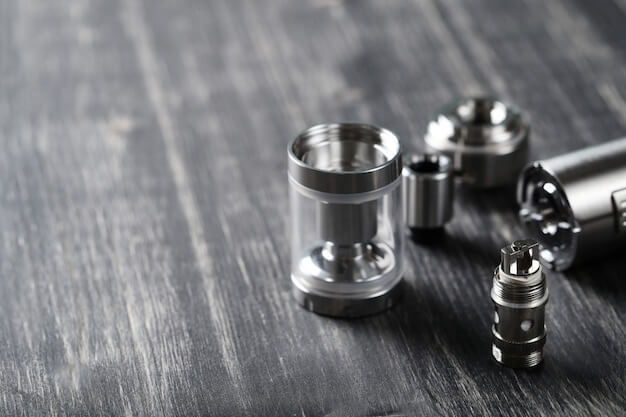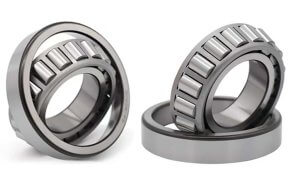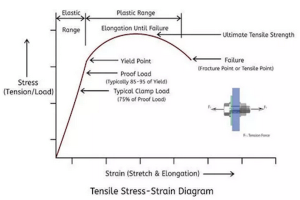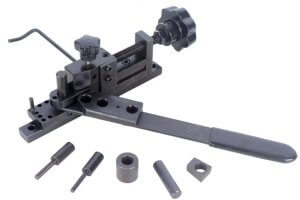CNC Machining and the Importance of Material Selection
Computer Numerical Control (CNC) machining, a predominant method in manufacturing industries, involves the use of computers to control machine tools with precision and speed. A key aspect for successful CNC machining is material selection. The choice determines not only the parts’ quality but also significantly impacts the overall performance under extreme conditions like high heat and pressure. Inappropriate material can fail under these circumstances, leading to part failure or decreased production efficiency.
-
The type of metal: Understanding the type of metal required for a specific application is crucial. Different metals behave differently under varying conditions of heat and temperature. For instance, aluminum machined parts are resistant to corrosion, lightweight yet strong enough for most applications; whereas steel provides higher tensile strength suitable for heavy-duty equipment.
-
Machinability: Some materials are easier to shape than others. Their machinability defines this ease, based on characteristics such as hardness, brittleness, and melting point.
-
Heat and Pressure Resistance: Since CNC machining often functions under intense conditions, material choice must have good resistance level to withstand abrupt thermal expansion or contraction without any deformation.
CNC Machining Under Extreme Conditions
In relation to CNC machining, extreme conditions typically refer to scenarios where the operational parameters exceed the usual industrial standards, thus significantly affecting both the process and the end product. The most notable among these are heat and pressure-related factors. Heat plays a dual role in the machining process; excessive heat, caused by high cutting speeds or feed rates can lead to deformation of the workpiece and shorten tool life whereas insufficient heat doesn’t allow for effective cutting. On the other hand, pressure affects the material removal rate and overall quality of the finished piece. High pressure may cause structural defects such as cracks and deformations while insubstantial pressure might result in an incomplete or rough finish. Both elements need to be meticulously managed and precisely balanced during the machining under extreme conditions.
- Heat: A key factor that impacts tool wear and material strength, causing potential deformation if not properly controlled.
- Pressure: Influences the material removal rate and the final product’s quality, contributing to potential structural defects if excessively high.
Material Properties and Considerations
When selecting materials for CNC machining under extreme conditions, such as high heat and pressure, several material properties and considerations should be taken into account. Here is a step-by-step analysis of material properties and considerations:
1. Heat Resistance:
- Materials with good heat resistance are essential for CNC machining under extreme heat conditions.
- High heat resistance ensures that the material can withstand elevated temperatures without significant deformation or damage.
- Choosing materials with excellent heat resistance is crucial for maintaining dimensional stability and preventing premature failure.
2. Pressure Resistance:
- Materials used in CNC machining under extreme pressure conditions should possess high strength and durability.
- They should be able to withstand the applied pressure without deforming or experiencing structural failure.
- Choosing materials with high pressure resistance ensures the integrity and reliability of the machined parts.
3. Chemical Compatibility:
- Considering the chemical compatibility of the material with the machining environment is crucial.
- Extreme conditions may involve exposure to corrosive substances or aggressive chemicals.
- Choosing materials that are resistant to chemical attack ensures the longevity and performance of the machined parts.
4. Mechanical Properties:
- The mechanical properties of the material, such as hardness, tensile strength, and toughness, play a vital role in CNC machining under extreme conditions.
- Materials with high hardness and strength can withstand the forces and stresses encountered during machining.
- Optimizing the mechanical properties of the material ensures the desired performance and longevity of the machined parts.
Considering material properties and their compatibility with extreme conditions is crucial for successful CNC machining. To explore CNC machining services that offer materials suitable for extreme conditions, you can visit our online CNC service.
Compatibility Between Machine Capability and Material
The selection of the appropriate material for CNC machining is heavily influenced by the capabilities of the machine. The intrinsic properties of the selected materials must match with the machine’s operational features, such as pressure tolerance, temperature thresholds, rotational speed, and tool specifications. These factors play a significant role in deciding whether a particular material can be efficiently machined without causing any unnecessary wear and tear to the machine components.
- Role of Machine Capabilities: If a machine lacks the necessary penetration strength or thermal resistance, it may struggle to work with hard or heat-resistant materials like steel or titanium, leading to possibly inadequate outcomes or even damage to the machinery itself. Therefore, understanding your machine’s limits and strengths will guide you towards the material choices that yield efficient results.
- Wrong Material Consequences: On the other hand, using a material unfit for the machine’s capability can negatively impact its performance. For example, an attempt at milling iron blocks on a machine designed primarily for wood could lead to faster degradation of tools due to excessive heat and friction generated. Such mismatch not only hampers productivity but also escalates maintenance costs, resulting in increased downtime of manufacturing processes.
Case Studies: Optimal Material Selection for CNC Machining under Extreme Conditions
In real-world applications, the correct choice of materials can significantly enhance the performance and reliability of CNC machining operations performed in extreme heat and pressure scenarios. For instance, aerospace industry often presents such challenges where they not only require high precision but also have to operate under intense conditions. An alloy like Inconel 718, with a high heat resistance capacity and excellent strength at elevated temperatures has been found effective in these applications. This nickel-chromium-based superalloy retains its strength even when exposed to soaring temperatures.
Moreover, Petroleum industry constantly deals with high heat and extraordinary pressures deep underground. Here, tungsten carbide, known for its toughness and ability to withstand high-pressure environments, is used frequently for drilling and cutting equipment. Using the right material significantly improves machine life, reduces maintenance requirements and leads to optimal operational efficiencies. On another note, ceramics, due to their heat resistance properties, are widely employed in manufacturing sectors where components see regular exposure to high heat treatments.
- In Aerospace, utilizing Nickel-Chromium alloys like Inconel allows continued operations under high heat conditions.
- Tungsten Carbide counters the rigorous demands of the petroleum industry, enhancing tool longevity and efficiency.
- Ceramics are frequent choices in sectors dealing with component heat treatment because of their innate thermal tolerance.
Conclusion
In conclusion, careful material selection is critical in dealing with CNC machining under extreme conditions. Metals such as titanium and stainless steel emerged supreme due to their high heat resistivity, pressure handling capabilities, and durability. Alternatively, composite materials like carbon fiber reinforced plastics (CFRPs), provide excellent stress resistance and thermal stability.
The final insights would emphasize the importance of considering factors such as temperature, pressure thresholds, chemical composition, physical properties, and cost-efficiency while making a choice. Future investigations could explore the integration of advanced alloys or smart materials which possess self-healing properties for extended usefulness under severe conditions.
Considerations for Material Selection in CNC Machining Under Extreme Heat and Pressure
The precision of Computer Numerical Control (CNC) machining under extreme conditions of heat and pressure depends largely on the material used. When selecting suitable materials, certain key factors must be taken into account to maintain efficiency in operation.
- Thermal Conductivity: Materials with high thermal conductivity are preferable as they allow efficient transfer of heat from tool to workpiece, reducing chances of overheating or cooling-related issues.
- Pressure Resistance: It’s crucial that selected materials can withstand extreme pressures without compromise to their structural integrity.
- Machinability: The ease at which a material can be cut into shape directly impacts productivity and operational costs.
To illustrate this, consider the use of stainless steel in aerospace applications, where extreme temperatures and pressures are common. Stainless steel has excellent heat resistance, making it less likely to deform under high temperatures. Moreover, its superior strength ensures durability under intense pressure, while its considerable machinability ensures cost-effectiveness during the manufacturing process.
Other Articles You Might Enjoy
- CNC Machining for Consumer Electronics: Material Selection for Heat Dissipation
Introduction to CNC Machining in Consumer Electronics CNC machining stands as a pivotal technology in the manufacturing of consumer electronics, offering precision and efficiency in producing components. This process involves…
- Precision CNC Machining of Steel: High-Volume Production
Precision CNC Machining and High-Volume Production As an integral part of modern manufacturing processes, Precision Computer Numerical Control (CNC) machining brings about unmatched accuracy and consistency in the production of…
- What is Heat Treatment in CNC Machining
Heat treatment is one of the most common process used by CNC machining manufacturer. It can change the material properties of your metal. This means that the metal's strength and…









